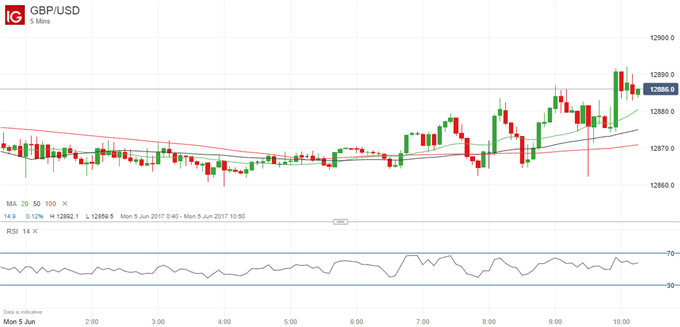Trading in the British Pound is set to be volatile this week ahead of Thursday’s UK General Election and the opinion polls in the days heading up to it. The ruling Conservative Party is seen as more market-friendly than the opposition Labour Party so polls suggesting a large Conservative victory will likely be positive for Sterling while predictions of a hung Parliament or an outright Labour win will likely weaken it.
The latest polls have been mixed, forecasting a Conservative majority of anywhere between 12% and just 1% but the trend has been clearly downwards, which will likely make the markets’ jitters worse. It will also be important to see whether the polls change after the latest terrorist attack in London.
Against this background, UK economic data this week will be less important than usual but the purchasing managers’ index for the services sector, just released, was disappointing. The Services PMI fell to 53.8 in May from 55.8 in April, below forecasts of a fall to 55.0.That was its lowest level since February as a squeeze on consumers and election concerns dampened this most-important sector of the UK economy.
The Composite PMI, which combines services with manufacturing and construction, fell to 54.5 from 55.9, also the lowest since February. According to Markit/CIPS, which calculate the figures, they suggest UK second-quarter GDP will increase by 0.5% quarter/quarter, up from 0.2% in the first quarter but with downside risks.
The British Pound fell on the numbers, as a weaker than expected economy reinforces expectations that the Bank of England will keep UK interest rates low for the foreseeable future but soon recovered.
Chart: GBPUSD Five-Minute Timeframe (June 5 Intraday)


